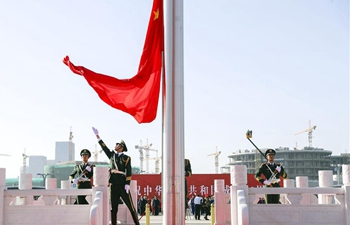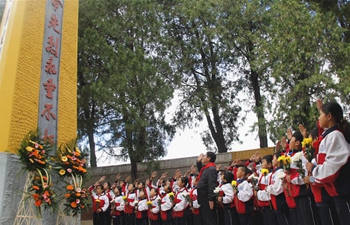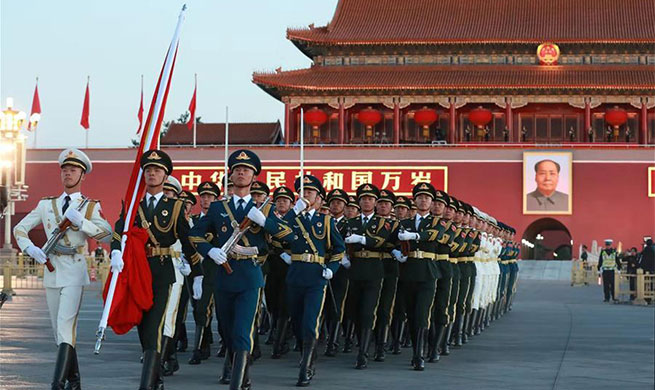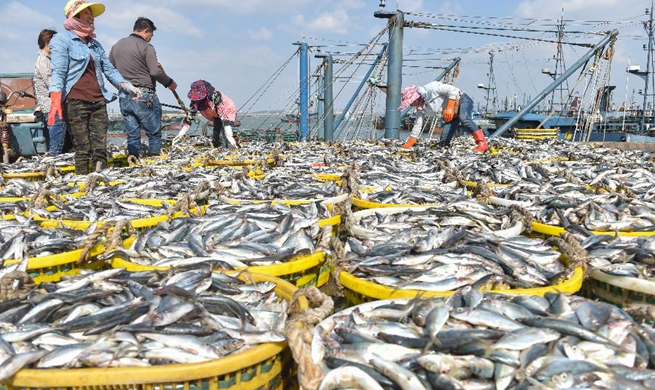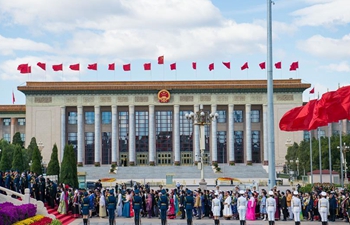MEXICO CITY, Oct. 1 (Xinhua) -- The revamped North American Free Trade Agreement (NAFTA) between Mexico, Canada and the United States fails to address the region's eroding competitiveness, according to a leading Mexican economist.
Jose Luis de la Cruz, general director of the Institute for Industrial Development and Economic Growth, said the updated version of the 1994 trade pact, renamed the United States-Mexico-Canada Agreement (USMCA), lacks integral policies like what Asian countries instituted to boost competitiveness, such as promoting technological innovation.
North America's loss of competitiveness in semi-finished product manufacture compared to other parts of the world, especially East Asia, is not going to be resolved through the agreement they have just reached, De la Cruz told Xinhua.
That can be resolved by raising the capacity for technological innovation and generating greater productive integration, he added.
It remains to be seen how the USMCA, reached Sunday night, impacts economic indicators over the next few years, but the trade deficits that led U.S. President Donald Trump to demand a renegotiated trade deal are likely to persist, said De la Cruz.
That's because the new deal is still primarily concerned with maintaining the free flow of goods between the three partners, with exchange amounting to some 1.3 billion U.S. dollars a year, he said.
"What we see here is that while the Asian model has been successful, is working and keeps moving forward, the North American model continues to be based solely on a free-trade outlook," said De la Cruz.
"There is no state economic policy backing it to boost productive capacity, innovation, public-sector and private-sector investment, and greater cooperation between the two," the economist said.
The biggest success of the NAFTA renegotiation, according to De la Cruz, is that it preserves the chapter on dispute resolution, which lets the partners settle trade conflicts on an equal footing.
Santander Bank (Mexico), one of Mexico's leading financial groups, also hailed the inclusion of Chapter 19, which the Trump administration was looking to scrap, as a major coup of the year-long negotiations.
"Chapter 19 grants NAFTA countries the capacity to appeal to a panel of experts when they believe there are unfair accusations of dumping and subsidies, which lead to anti-dumping tariffs and countervailing duties," Santander said in a report to clients.
"The United States wanted to eliminate Chapter 19 because it considers it a violation of its sovereignty," the report said.
The USMCA is to be submitted to each country's congress for approval, and U.S. lawmakers will probably enter into a "difficult and prolonged" debate that may not end until the first half of 2019, according to the report.
A new president is scheduled to be inaugurated in Mexico on Dec. 1, and the incoming administration has indicated that it plans to follow a more Asian model by spending on education and technology to increase competitiveness.
"Mexico needs to transition to a model of competitiveness based on human capital and the implementation of cutting-edge technology, in keeping with recent technological changes," the future minister of foreign affairs, Marcelo Ebrard, told reporters on Monday.
In the meantime, North America's productive capacity is going to remain largely unchanged, predicted De la Cruz.




